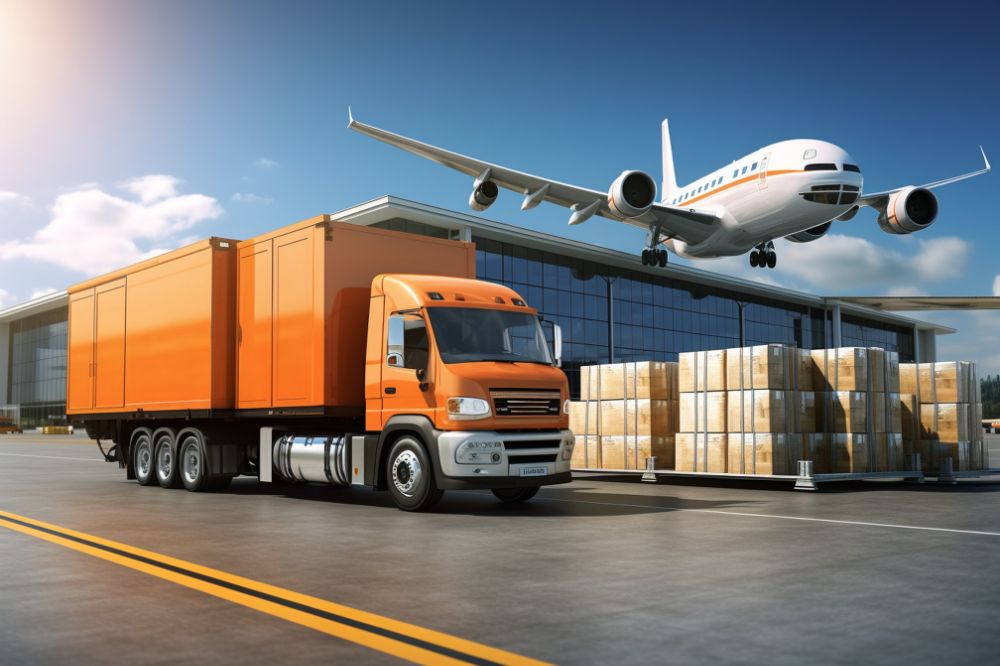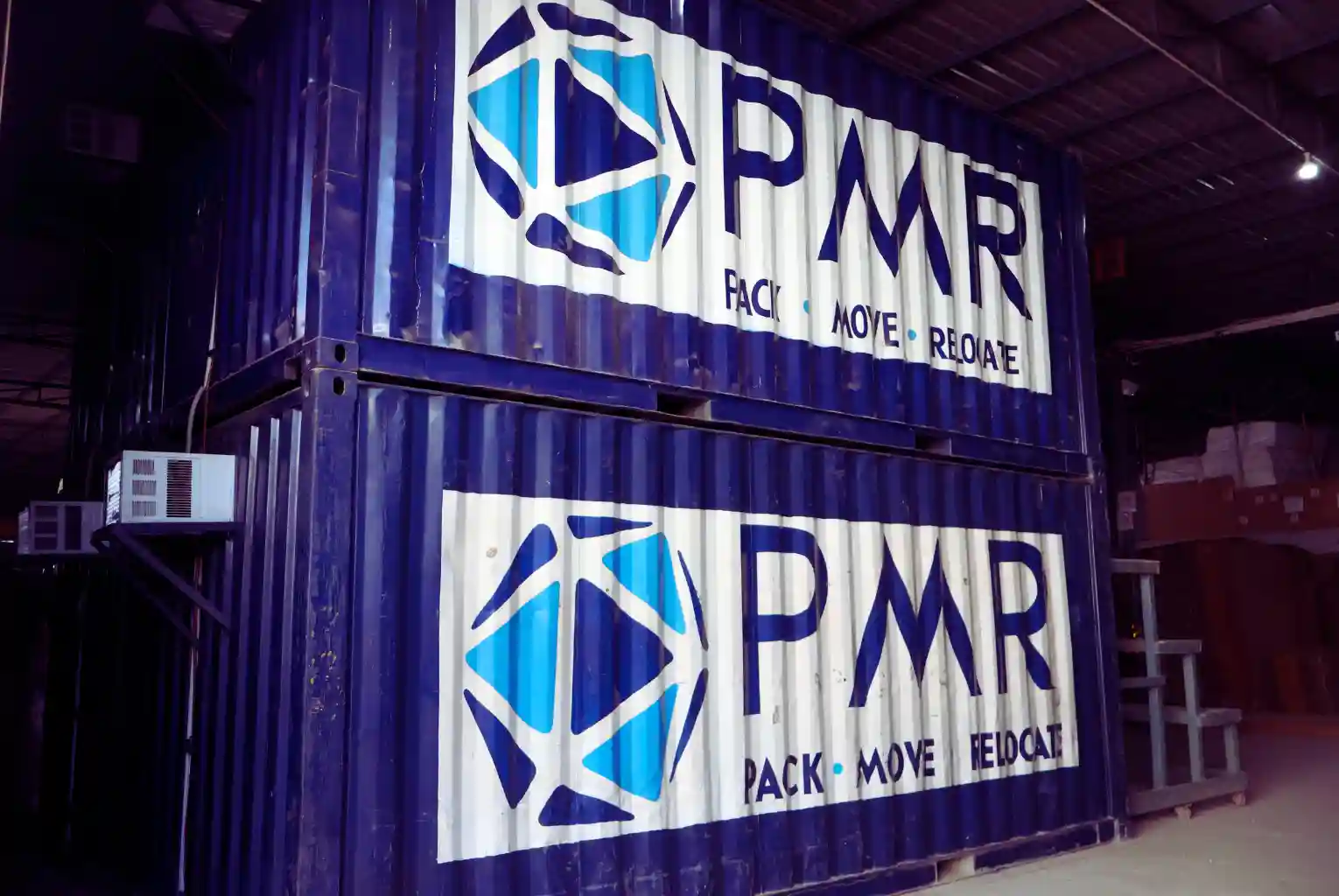FROM A TO Z: EVERYTHING YOU NEED TO KNOW ABOUT FREIGHT SERVICES

Understanding the Different Modes of Freight Transportation
- Road Freight: This mode involves transporting goods via trucks or tractor-trailers on highways and roads. It is a flexible and cost-effective option for short to medium-range shipments, particularly for time-sensitive or door-to-door deliveries.
- Rail Freight: Railroads are an efficient and eco-friendly mode of transportation for bulk commodities and containerized cargo over long distances. Rail freight is ideal for heavy or oversized shipments and is often more cost-effective than road transportation for long-haul journeys.
- Air Freight: Air cargo services offer the fastest mode of transportation, making them suitable for urgent, time-sensitive, or high-value shipments. While more expensive than other modes, air freight is invaluable when speed is of the essence or when shipments need to cover vast distances quickly.
- Maritime Freight: Ocean shipping is the most cost-effective mode for transporting large goods over long distances. Ships transport containerized cargo and bulk commodities, making maritime freight essential to international trade.
- Multimodal Freight: Different transportation modes are utilized to optimize efficiency and costs. For example, a shipment may be transported by road to a rail terminal, then by rail to a port, and finally by ocean vessel to its destination.
Choosing the Right Freight Service Provider
- Service Offerings: Ensure the provider offers the specific services you require, such as transportation modes and routes and additional services like warehousing or customs clearance.
- Reliability and Track Record: Research the provider's reputation, on-time delivery rates, and customer satisfaction levels to gauge their reliability.
- Global Reach: If your business operates internationally, choose a provider with a robust international network and experience managing cross-border shipments.
- Technology and Visibility: Evaluate the provider's technological capabilities, including real-time tracking, online booking, and reporting tools.
- Pricing and Value: While cost is a significant factor, consider the overall value proposition, including service quality, reliability, and additional services.
The Importance of Proper Packaging and Labeling
- Packaging: Choose sturdy, high-quality packaging materials suitable for the type of goods being shipped. Proper cushioning, bracing, and moisture barriers can protect your cargo from potential damage during transit.
- Labeling: Clear and accurate labeling is essential for correctly identifying and handling shipments. Include all necessary information, such as sender and recipient details, handling instructions, and any required markings or symbols.
- Hazardous Materials: If your shipment contains dangerous materials, specific packaging and labeling requirements must be followed to comply with regulations and ensure the safety of all involved in the transportation process.
Navigating Freight Documentation and Customs Clearance
- Bill of Lading: This document serves as a contract between the shipper and the carrier, providing details about the shipment, such as the parties involved, goods being transported, and terms of carriage.
- Commercial Invoice: This document provides a detailed description of the goods being shipped, including their value, quantities, and any applicable tariff classifications.
- Packing List: A packing list itemizes the contents of each package or container within the shipment, aiding in customs clearance and delivery verification.
- Customs Clearance: Engaging the services of a customs broker or freight forwarder can help ensure compliance with all relevant customs regulations, including the payment of duties and taxes, and facilitate the smooth clearance of your shipments.
Maximizing Cost-Efficiency in Freight Services
- Mode Selection: Choosing the most suitable mode of transportation based on factors like distance, urgency, and cargo type can optimize costs while meeting delivery requirements.
- Route Optimization: Utilizing advanced logistics software and working with experienced freight providers can help identify the most cost-effective routes and consolidation opportunities.
- Negotiating Rates: Leveraging your shipping volumes and building solid relationships with providers can enable you to negotiate better rates and secure discounts.
- Load Optimization: Maximizing the utilization of available space in trucks, containers, or other transportation units can help reduce costs by minimizing the number of shipments required.
Time-Sensitive Shipments: Expedited Freight Solutions
- Air Freight Express: Air cargo services offer the quickest transportation option for urgent shipments, with dedicated express services providing enhanced speed and reliability.
- Hotshot Trucking: Specialized trucking companies offer expedited over-the-road transportation, utilizing team drivers and prioritized routing to deliver shipments as quickly as possible.
- Next Flight Out: Some freight forwarders offer a "next flight out" service, ensuring your shipment is loaded onto the next available flight, regardless of carrier or route.
- White Glove Services: For high-value or fragile shipments requiring extra care, white glove services provide specialized handling, packaging, and door-to-door transportation by dedicated teams.
Managing Risks: Insurance and Liability in Freight Services
- Cargo Insurance: Cargo insurance policies protect against financial losses from physical damage, theft, or other insured perils during transportation.
- Liability Coverage: Freight service providers typically carry liability insurance to protect against claims arising from their negligence or errors in handling and transporting shipments.
- Risk Assessments: Conducting thorough risk assessments can help identify potential vulnerabilities in your supply chain and implement appropriate risk management strategies.
- Contract Terms: Carefully reviewing and negotiating contract terms with freight service providers can clarify liability responsibilities and ensure adequate protections are in place.
Tracking and Visibility: Keeping an Eye on Your Shipments
- GPS Tracking: Many freight service providers offer GPS tracking capabilities, allowing you to monitor the location and status of your shipments in real time.
- Online Tracking Portals: Web-based tracking platforms provide up-to-date information on shipment progress, estimated delivery times, and any exceptions or delays.
- Milestone Notifications: Automated notifications can alert you when your shipment reaches critical milestones, such as departure, arrival, or delivery, ensuring you stay informed throughout the process.
- Advanced Analytics: Some providers offer advanced analytics tools that analyze historical data and performance metrics to identify areas for improvement and optimize future shipments.
Sustainable Freight Practices: Reducing Environmental Impact
- Intermodal Transportation: Utilizing a combination of transportation modes, such as rail and road, can help reduce emissions and energy consumption compared to relying solely on trucks.
- Route Optimization: Optimizing routes and consolidating shipments can minimize unnecessary travel, reducing fuel consumption and emissions.
- Alternative Fuels: Many freight carriers are exploring alternative fuels, such as biofuels, electric vehicles, or compressed natural gas, to power their fleets and reduce their environmental impact.
- Eco-Friendly Packaging: Utilizing sustainable packaging materials, such as recycled or biodegradable options, can further reduce the environmental footprint of freight transportation.
Leveraging Technology in Freight Services
- Transportation Management Systems (TMS): TMS platforms are software solutions that enable businesses to plan, execute, and optimize their freight operations. These systems can automate load planning, carrier selection, route optimization, and shipping documentation, streamlining transportation.
- Electronic Logging Devices (ELDs): ELDs are mandated for commercial trucks in many regions, replacing traditional paper log books. These devices automatically record driving time, facilitating compliance with hours-of-service regulations and improving road safety.
- Internet of Things (IoT) and Telematics: IoT sensors and telematics devices can be integrated into transportation assets, enabling real-time monitoring of factors like location, temperature, humidity, and security. This data can be leveraged for optimized routing, proactive maintenance, and improved cargo condition monitoring.
- Blockchain Technology: Blockchain's decentralized and transparent nature makes it well-suited for applications in the freight industry. It can enhance supply chain visibility, streamline documentation processes, and facilitate secure data sharing among multiple parties involved in a shipment.
- Artificial Intelligence (AI) and Machine Learning (ML): AI and ML algorithms can analyze vast amounts of data to identify patterns and insights, enabling predictive analytics for demand forecasting, dynamic pricing, and optimized resource allocation in freight operations.
- Autonomous Vehicles and Drones: While still in their early stages, autonomous trucks and delivery drones hold the potential to revolutionize freight transportation, reducing labor costs and improving efficiency in last-mile delivery.
- Digital Freight Marketplaces: Online platforms that connect shippers with carriers and facilitate real-time booking, quoting, and capacity matching are gaining traction, promoting transparency and efficiency in the freight industry.
Our Blogs

WHY SUCCESSFUL RELOCATION DEPENDS MORE ON RELOCATION PLANNING THAN DISTANCE
Successful relocation is rarely defined by distance—it’s driven by effective planning. From choosing the right storage solutions to coordinating warehouse timelines, smart relocation planning helps protect your belongings, reduce delays, and ensure a seamless transition. Whether it’s short-term storage or long-term warehousing, organized logistics play a critical role in making any move successful.

WHY YOUR BELONGINGS DESERVE A PAUSE: RETHINKING STORAGE AND WAREHOUSING SERVICES DURING RELOCATION
Relocation is not always a seamless door-to-door journey. Delayed handovers, international transit schedules, temporary housing, or sudden changes in plans often create a gap between moving out and moving in. During this uncertain phase, professional storage and warehousing services provide a safe, controlled environment for your belongings. From short-term holding to long-term storage, these solutions ensure your household goods remain protected, organized, and ready for the next step of your relocation—without adding stress to an already complex move.

WHY INTERNATIONAL RELOCATION TIMELINES OFTEN SLIP — AND WHAT YOU CAN DO TO STAY ON TRACK
International relocation timelines often look straightforward on paper—but reality tells a different story. Visa approvals, customs regulations, documentation gaps, port congestion, and coordination between multiple service providers can easily cause unexpected delays. Even small oversights early in the planning stage can snowball into weeks of disruption. This blog breaks down the real reasons why international relocation timelines slip and, more importantly, outlines practical steps you can take to anticipate risks, plan smarter, and keep your global move moving forward without unnecessary stress.



